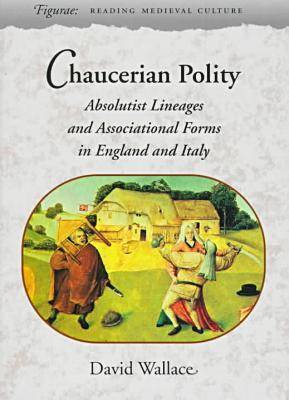Chaucer's encounters with the great Trecento authors Dante, Boccaccio, and Petrarch facilitate the testing and dismantling of time-honored terms such as medieval, Renaissance, and humanism. The author argues that no magic curtain separated medieval London and Westminster from Renaissance Florence and Milan; as a result of his Italian journeys, all sites were interlinked for Chaucer as parts of a transnational nexus of capital, cultural, mercantile, and military exchange. In his travels, Chaucer was exposed to the Trecento's most crucial material and ideological conflict, that between a fully developed and highly inclusive associational polity (Florence) and the first, prototypically imperfect, absolutist state of modern times (Lombardy). Chaucer's Canterbury Tales, the author proposes, explores both the establishment and maintenance of generously inclusive associational forms (the pilgrim compagnye) and the dangers of despotism (most famously exemplified by tyraunts of Lombardye). The Tales thus speaks to political tensions experienced in Ricardian, or fourteenth-century, England that find resolution only in the sixteenth century.
- ISBN10 0804736618
- ISBN13 9780804736619
- Publish Date 8 April 1999 (first published 1 April 1997)
- Publish Status Active
- Out of Print 16 June 2021
- Publish Country US
- Imprint Stanford University Press
- Edition New edition
- Format Paperback
- Pages 578
- Language English
